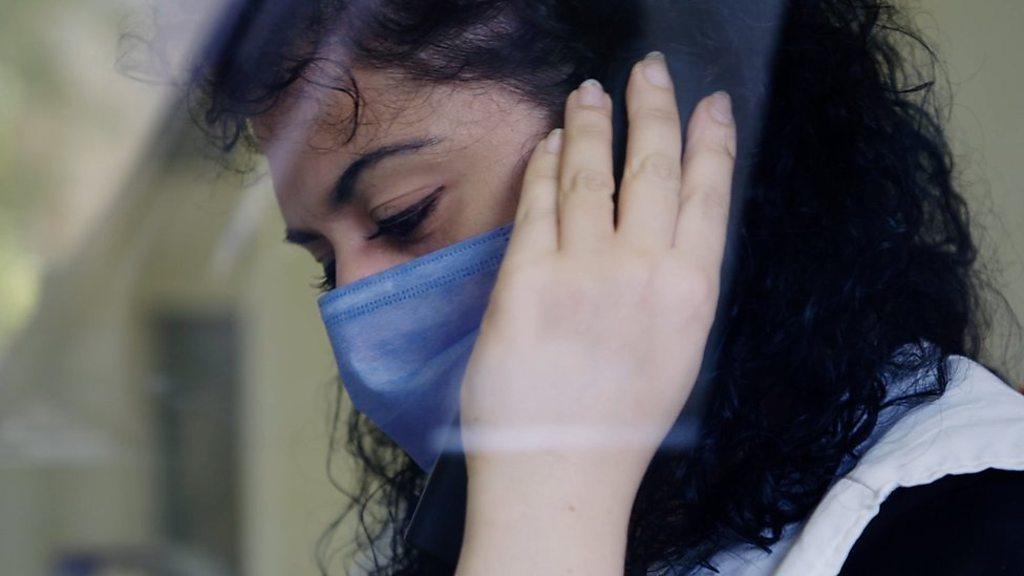Coronavirus: Italy prosecutors quiz PM Conte on crisis
- Published
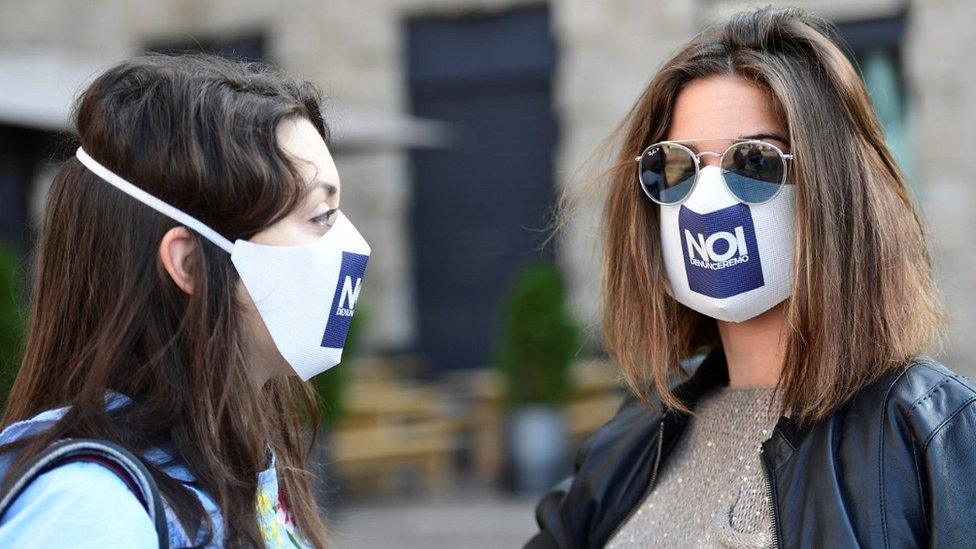
The citizens' group Noi Denunceremo (We Will Report) demands justice for Covid-19 victims
Prime Minister Giuseppe Conte has been questioned by prosecutors from northern Italy after relatives of Covid-19 victims demanded an inquiry into alleged government negligence.
The prosecutors travelled to Rome from Bergamo, the city near Milan worst hit by coronavirus before the whole country was locked down in March.
The talks with Mr Conte lasted about three hours. The interior and health ministers are also being questioned.
The focus is the lockdown policy.
Relatives argue that virus hotspots should have been isolated earlier.
Fifty legal complaints have been filed at the Bergamo prosecutor's office by a citizens' group called Noi Denunceremo (We Will Report).
The group consists of bereaved relatives of Covid-19 victims, who say two Lombardy towns - Alzano and Nembro - should have been declared "red zones" as soon as the outbreaks were detected there.
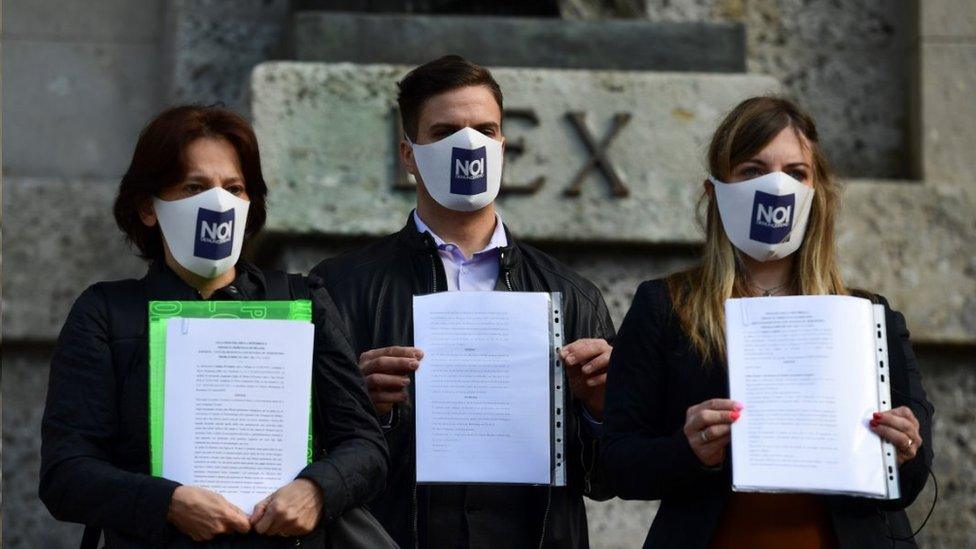
Noi Denunceremo members show the legal complaints they filed in Bergamo
It is the first legal group action in Italy triggered by the pandemic. But the Lombardy region is governed by the right-wing opposition League party, and many have blamed them, rather than the central government, for alleged failures in the coronavirus response.
Besides Mr Conte, the team led by Bergamo chief prosecutor Maria Cristina Rota is also questioning Italian Interior Minister Luciana Lamorgese and Health Minister Roberto Speranza on Friday.
They aim to determine if there are grounds for any charges of criminal negligence, and whether the decision on a lockdown should have been taken by politicians in Rome or Lombardy.
Earlier, Mr Conte said he was "not at all worried" about the inquiry.
Lombardy was where the virus first started spreading in Europe and more than half the victims in Italy died in the region.
On Thursday, Italy's official coronavirus death toll stood at 34,114 - the second highest figure in Europe after the UK, and fourth-highest in the world.
But Italy's infection rate has been brought down, enabling the authorities to gradually ease draconian restrictions.
Italian PM Giuseppe Conte told the BBC in April how the lockdown could be eased
Rome's responsibility or Lombardy's?
Mr Conte said: "I will conscientiously set out all the facts of which I have knowledge. I am not at all worried.
"All investigations are welcome. The citizens have the right to know and we have the right to reply."
In a BBC interview in early April, Mr Conte denied claims that he had underestimated the crisis. He said that if he had ordered a lockdown at the beginning, when the first virus clusters were detected, "people would have taken me for a madman".
He dismissed the suggestion that Italy could have rapidly imposed a big lockdown like the one in the Chinese city of Wuhan.
Lombardy officials say locking down virus hotspots was a central government responsibility. The region's Health Minister Giulio Gallera has said it was clear from 23 February that Alzano and Nembro had many cases.
But Mr Conte, who heads a centre-left coalition government, hit back by saying "if Lombardy had wanted to, it could have made Alzano and Nembro red zones", AFP news agency reported.
The prosecutors have already questioned senior Lombardy officials.
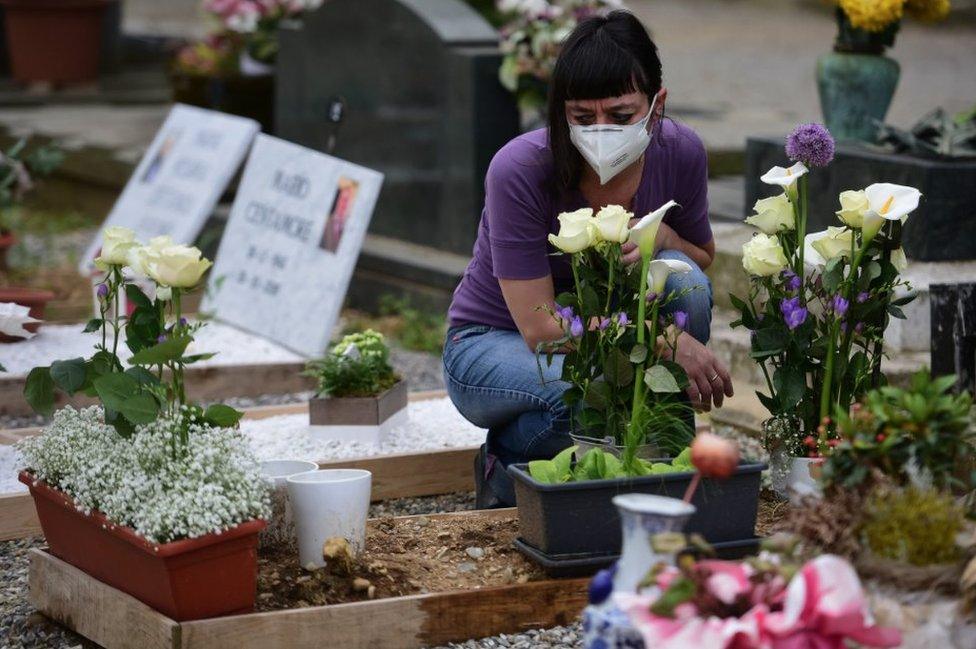
Covid-19 victims are buried in a new section of the Monumental Cemetery in Bergamo
How did the crisis unfold in Lombardy?
The little town of Codogno was first to be locked down, on 21 February. Then Lombardy and 14 provinces in the neighbouring regions of Veneto, Piedmont and Emilia Romagna were locked down on 8 March. Two days later the lockdown was extended to the whole of Italy.
In early March it was clear that hospitals in the Lombardy crisis zone were overwhelmed with Covid-19 patients and struggling with shortages of protective kit, beds and medical staff.
BBC footage from a hospital in Brescia, near Bergamo, showed how doctors struggled with "staggering" numbers of Covid-19 patients, without medication to fight the virus.
The widow of one victim, Monica Plazzoli, said: "If it hadn't been so disorganised, if [the province of] Bergamo had been made into a red zone earlier, perhaps the hospitals would not have been driven to collapse".

How the crisis has taken a toll on mental health:
The mental health toll as Italians struggle to cope with Europe's strictest and longest-running lockdown

FACE MASKS: When should you wear one?
GLOBAL SPREAD: Tracking the pandemic
EUROPE LOCKDOWN: How is it being lifted?
WHAT DOES IT DO TO THE BODY? Doctors on the front line explain

- Published3 June 2020
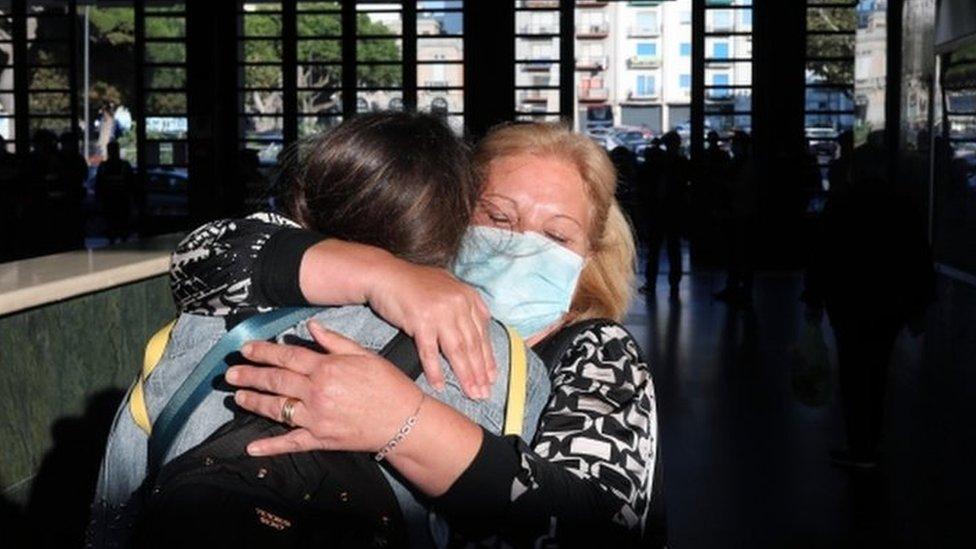
- Published7 May 2020
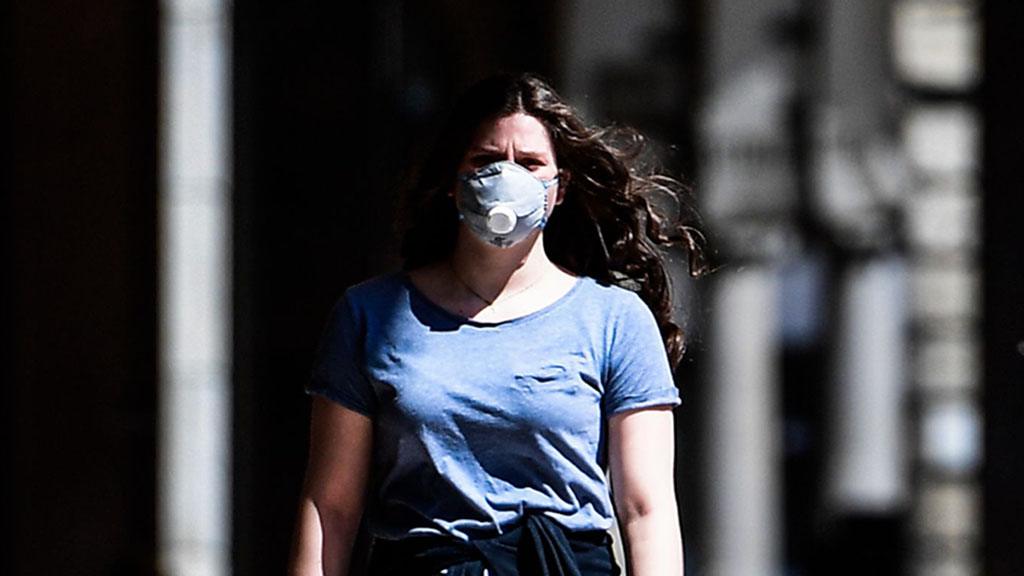
- Published26 May 2020
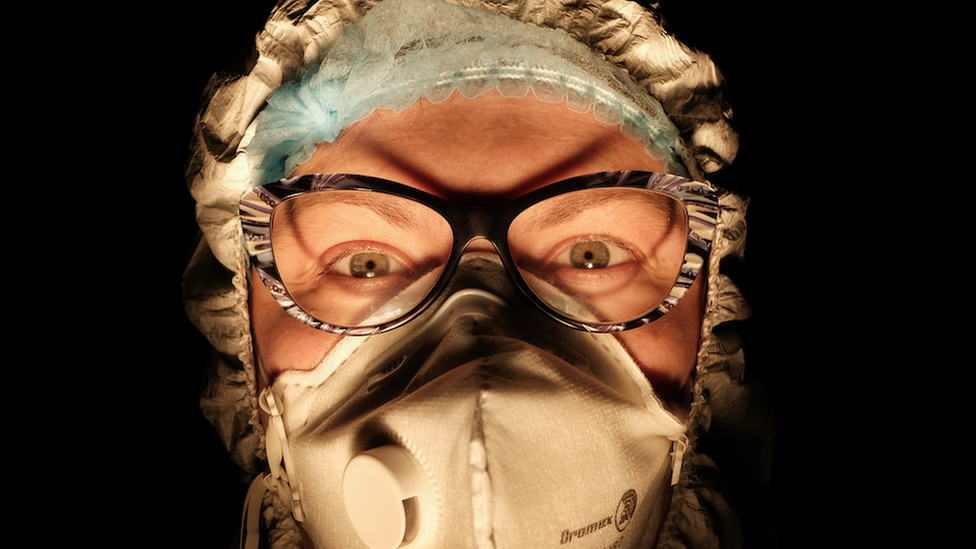
- Published17 May 2020
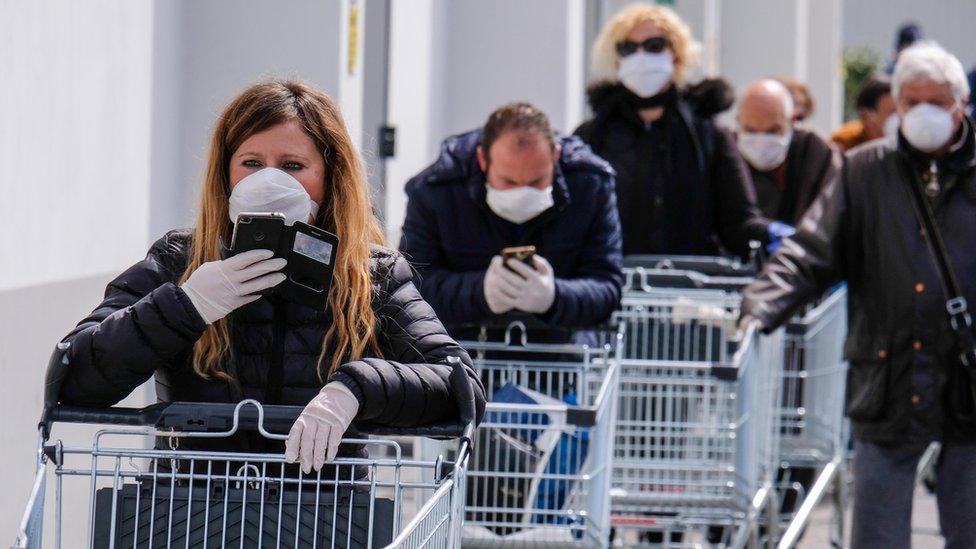
- Published24 April 2020
